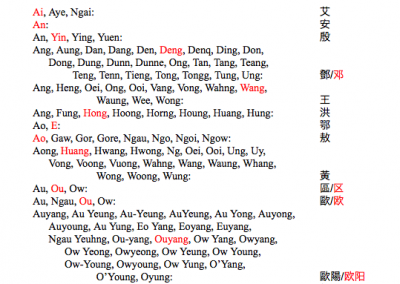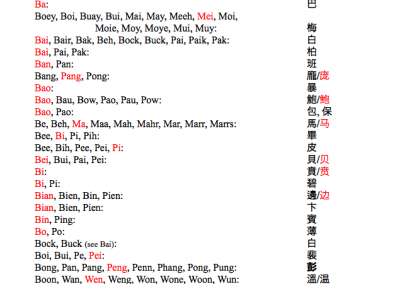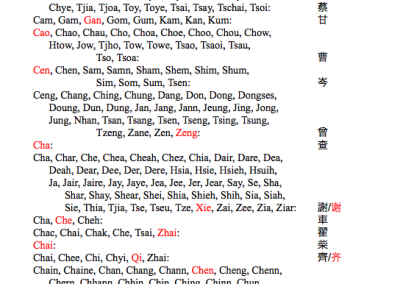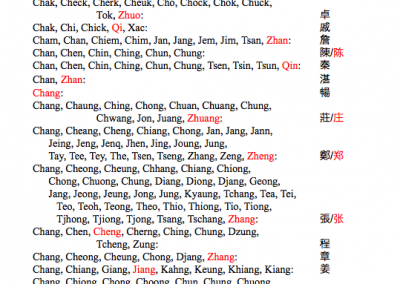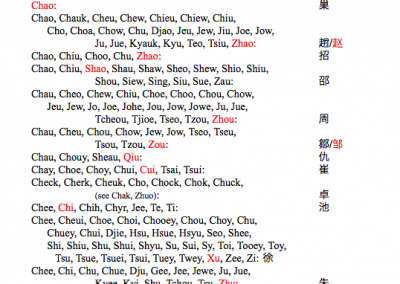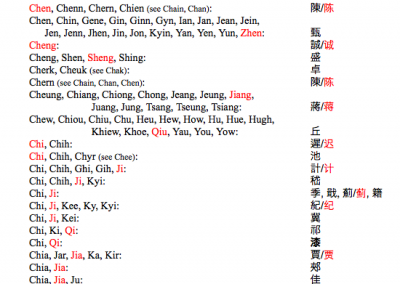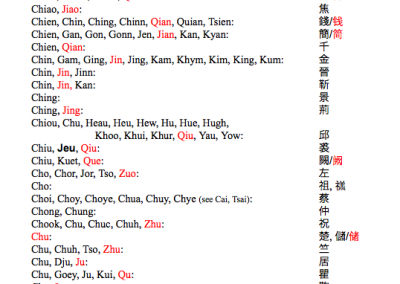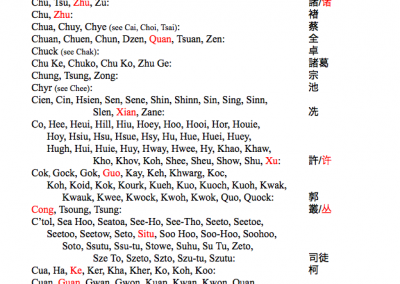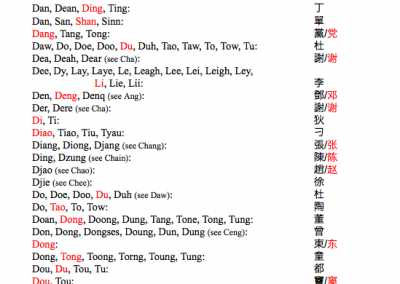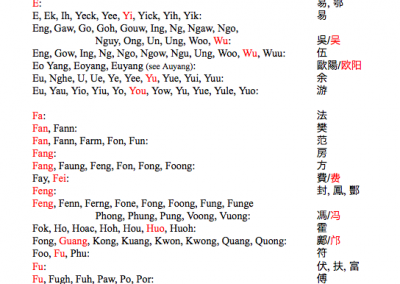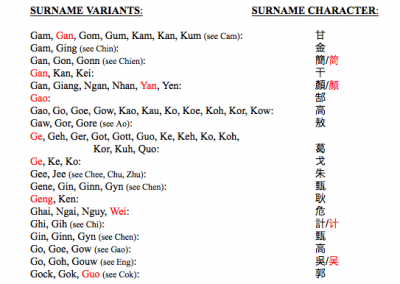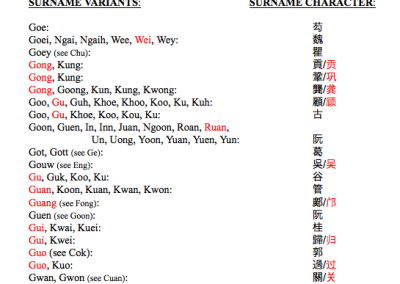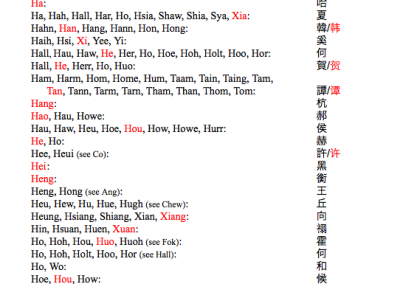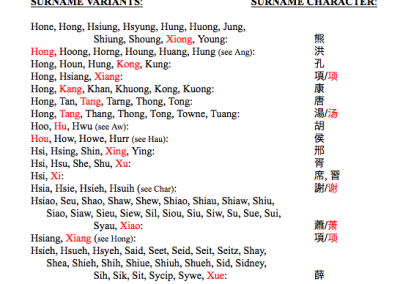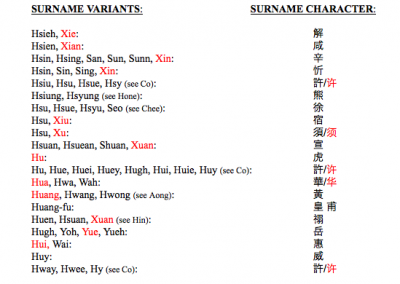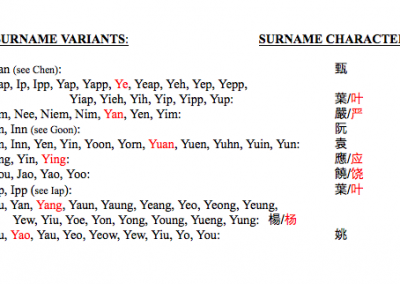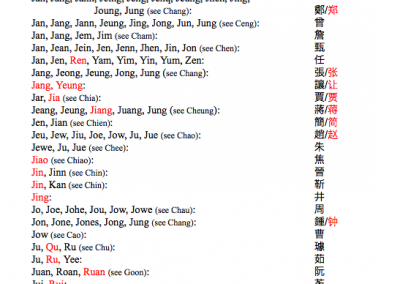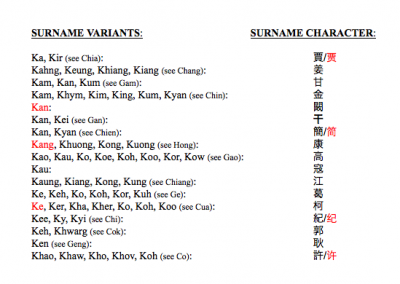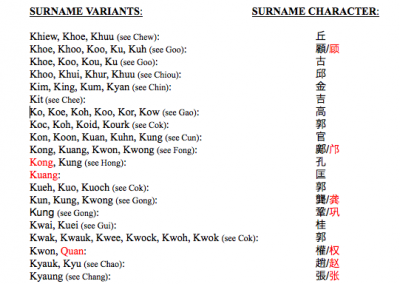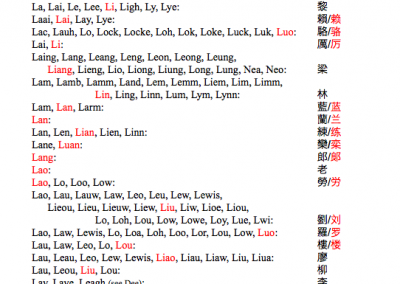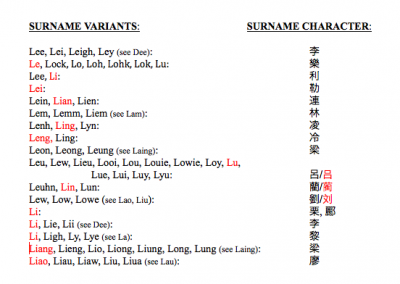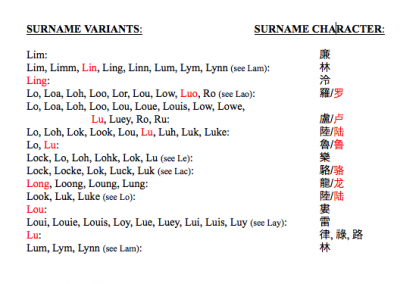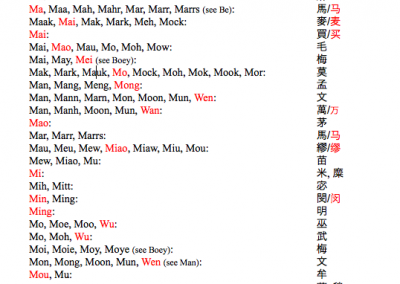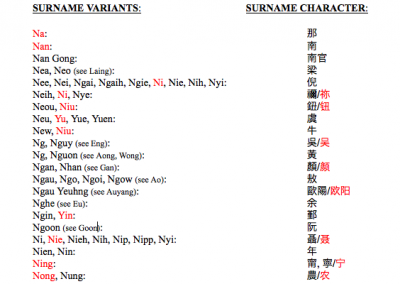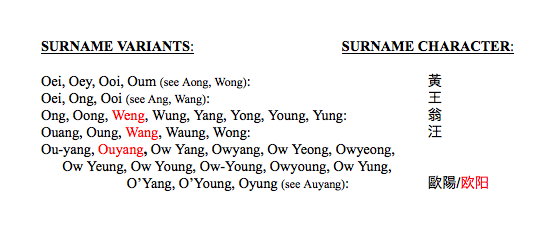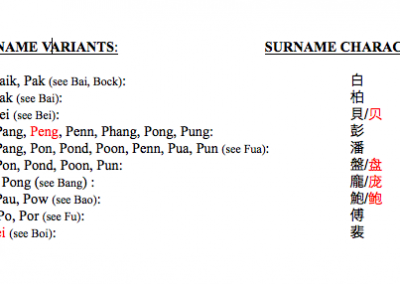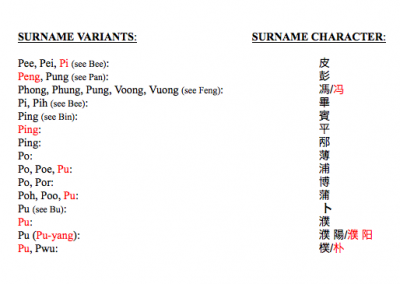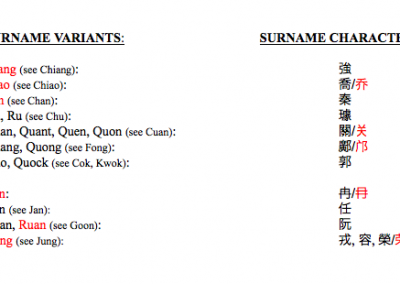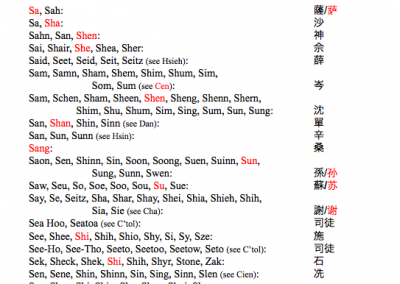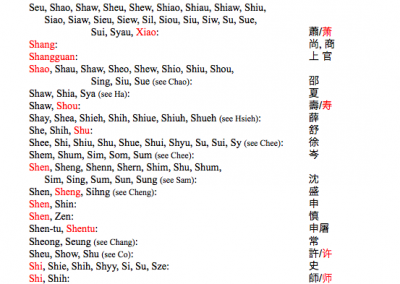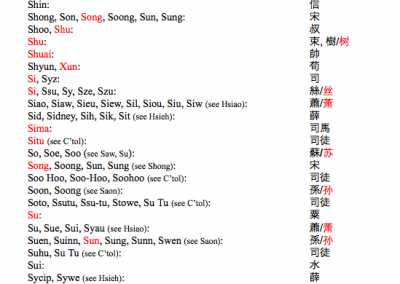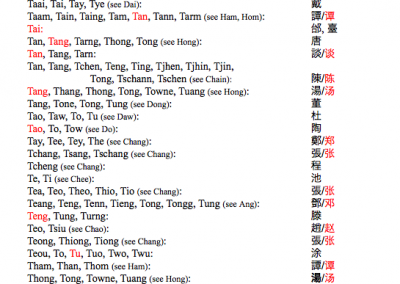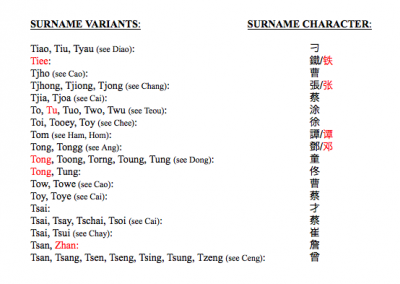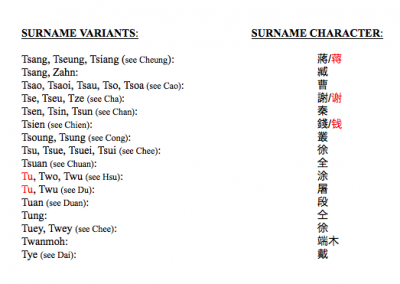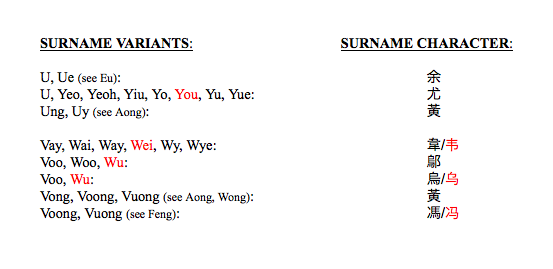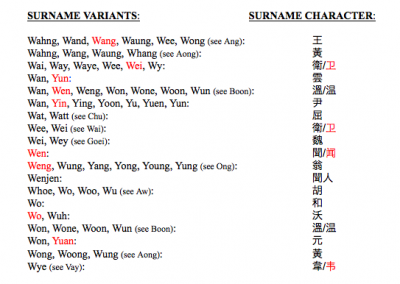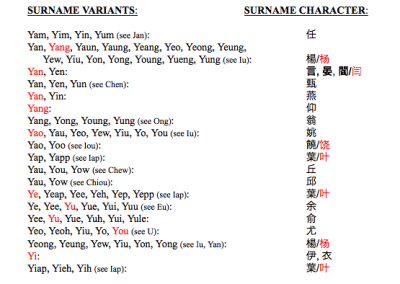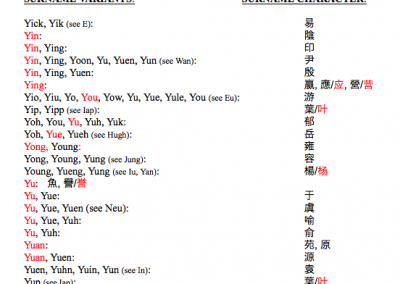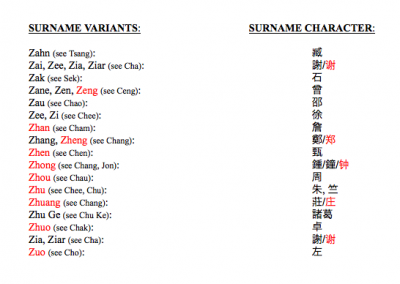
List #1: Select List of Chinese American Surnames
& Corresponding Chinese Character
The diversity in spelling variants for the common Chinese family names covers over a century and half of Chinese immigration history. As was explained in the book Chinese American Names: Tradition and Transition, Cantonese-sounding surnames predominated for Chinese Americans on mainland America and Hawaii because of immigration laws that restricted Chinese immigration. Those laws kept the Cantonese speaking communities in the majority. Mandarin did not exist as China’s national language until after 1920 when it was selected by language reformists to be taught in schools. The appearance of large numbers of surnames reflecting Mandarin, Hakka, Shanghai, Hokkien, and Teochew pronunciations coincide with the chronology of Chinese American history. Unfortunately, each surname listed cannot be identified as belonging to a particular language or dialect group because of similarity and cross overs in spelling from one dialect to another.
Surnames are listed below in alphabetical order. When surnames appear with a different initial, they are listed separately whenever possible. Due to lack of space, not every surname can be listed separately; it may be found in List #2: Similar Spelling for Different Surnames. The following compilation is probably more helpful to the person who wants to In the following compilation, Pinyin spelling is in red color (see FAQ). The traditional form for a surname character is used and if its simplified form exists, which was developed in the PRC, it will also be in red color. Unfortunately the particular regional speech cannot be identified for each spelling variant. Some Mandarin-sounding surnames are spelled the same in Pinyin and Wade-Giles. Some surnames can be identified as belonging to a southern regional speech. The combinations “Dz” and “Ky” can be found in some Shanghai-sounding names. Some Shanghai and Hakka surnames begin with the initial “V.” Surnames beginning with “Chh” and “Ph” could be Hakka, Hokkien or Teochew. Those beginning with “Kh” could be Hokkien or Teochew. Surnames starting with “Ts” occur in all the southern speech varieties as well as in Wade-Giles. And, similar to Pinyin spelling, several Shanghai surnames begin with the initial “Z.” However, surnames that end in the consonants “k”, “m”, “p”, and “t”, such as Kwok, Lim, Yip, and Wat, would be Cantonese, Hakka, Hokkien, or Teochew names. A few Shanghai surnames end with the “k” consonant. These final consonants of words occurred in Middle Chinese that was spoken between the 6th through the 10th centuries. Only Cantonese and Hakka, being derived directly from this language, retained all the final consonants. The Cantonese say they speak the Tang dynasty language. As the Chinese spoken language developed in the next centuries, the Middle Chinese final consonants disappeared in the Mandarin dialects.Expand text
To better understand the background of Chinese American surnames, see FAQ
Select any image below, and a clickable slide show will appear:
© Emma Woo Louie 2015-2024 All rights reserved
